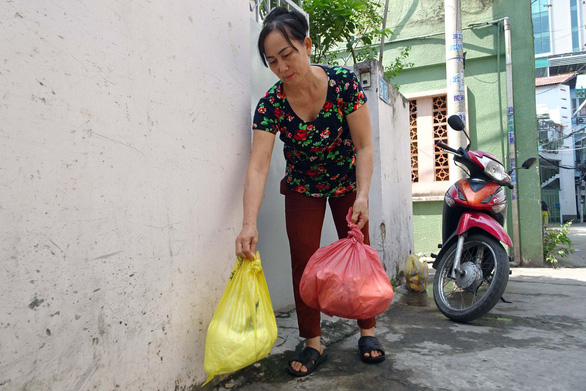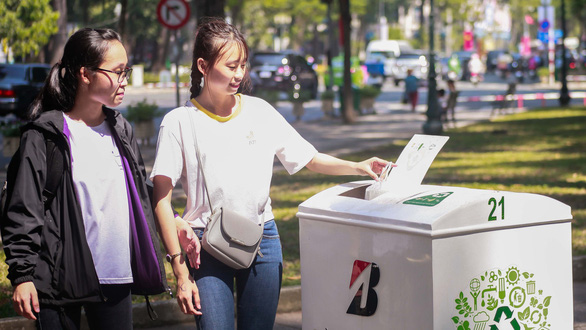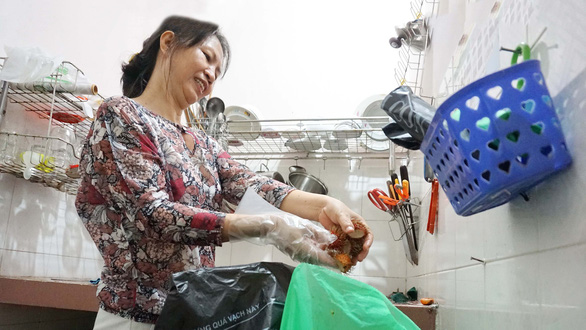Ho Chi Minh City authorities will start implementing a set of regulations requiring local residents to classify their garbage on Saturday, in a bid to reduce the harmful effects of household waste on the environment.
The municipal People’s Committee has recently issued Decision No. 44 on the classification of solid waste in each household.
The rules will be phased in before competent authorities begin fining violators.
According to the regulations, each family is required to categorize their garbage into three groups, namely biodegradable organic waste, waste that can be reused and recycled, and others.
Biodegradable organic waste includes leftover food, leaves, vegetables, tubers, fruits, and carcasses, which should be contained in white, green, or blue bags.
Waste made of paper, plastic, metal, rubber, and glass is considered reusable and recyclable. This group of garbage, along with the third group, should be kept in bags whose color is different from white, green, and blue.
 |
| A resident in District 1 classifies her household waste. Photo: Tuoi Tre |
Authorities also encourage local residents to mark their rubbish with stickers or texts.
Garbage collectors are scheduled to fetch biodegradable organic waste on Monday, Wednesday, Friday, and Sunday and the other two groups of rubbish on the remaining days of the week.
Following a certain period, those who fail to comply with the regulations are expected to be penalized.
According to an official from the municipal Department of Natural Resources and Environment, the fines range from VND15 million (US$642) to VND20 million ($856), which are in line with Decree No. 155 on penalties for environment-related violations.
Aside from the garbage sorting efforts, the municipal administration will also press ahead with a plan to replace vehicles in charge of collecting and transporting rubbish with new and enhanced ones from now to November 2019.
 |
| A recycle bin in a public park has separate compartments to contain different types of trash. Photo: Tuoi Tre |
Ben Nghe Ward in District 1 is among a few neighborhoods in Ho Chi Minh City where citizens have been advised to classify their trash over the past years.
Most households in the ward have agreed to follow the direction so far, said Vo Quoc Hung, vice-chairman of the local administration.
Similarly, authorities in Phuoc Binh Ward, District 9, have been providing residents with eco-friendly bags to contain their garbage in the past year.
The bags are labeled with different stickers to guide the locals to categorize their household waste, deputy chairwoman Bui Thu Tram said, adding that the plan has proven effective.
Those who consistently follow the rules are publicly commended to set examples to other residents in the ward, Tram added.
Like us on Facebook or follow us on Twitter to get the latest news about Vietnam!























































